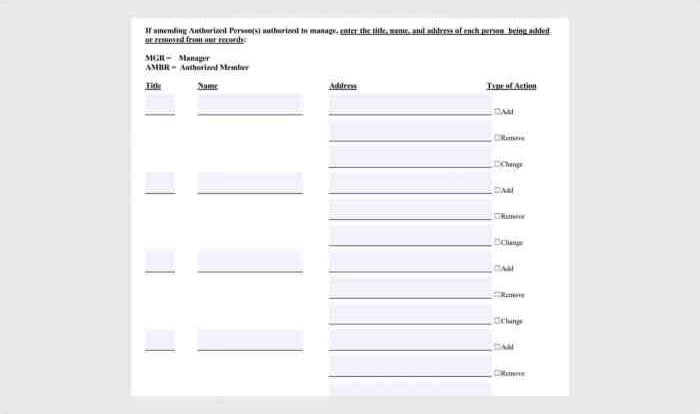Ancient dictum in real estate, a cornerstone of the industry, offers timeless wisdom that continues to shape modern practices. This enduring set of principles, rooted in ancient civilizations, provides a solid foundation for informed decision-making in the real estate realm.
From the significance of location to the importance of tenure and value, the ancient dictum serves as a guiding light for real estate professionals, enabling them to navigate the complexities of the market and make strategic choices.
Historical Origins of the Ancient Dictum

The ancient dictum in real estate has its roots in the wisdom and practices of ancient civilizations. These civilizations, such as the Babylonians, Greeks, and Romans, developed principles and laws that governed property ownership, land use, and real estate transactions.
Ancient Civilizations’ Influence
Ancient civilizations played a significant role in shaping the fundamental principles of real estate. For instance, the Babylonians established a system of land registration and taxation, while the Greeks developed concepts of property rights and easements. The Romans further refined these principles, introducing legal frameworks for real estate ownership, mortgages, and land surveying.
Key Elements of the Ancient Dictum: Ancient Dictum In Real Estate

The ancient dictum in real estate encompasses three fundamental elements: location, tenure, and value. These elements serve as guiding principles for investors and stakeholders, providing a framework for decision-making and understanding the dynamics of real estate markets.
Location
Location is paramount in real estate, as it significantly influences the value and desirability of a property. Factors to consider include proximity to amenities, transportation hubs, schools, and commercial areas. A prime location typically commands higher prices and rental yields due to its convenience and accessibility.
Tenure
Tenure refers to the ownership rights and duration of possession of a property. Common types of tenure include freehold (permanent ownership), leasehold (temporary ownership for a specified period), and strata title (ownership of a unit within a larger development). The type of tenure impacts the level of control and flexibility that the owner has over the property.
Value
Value is the worth or monetary equivalent of a property. It is determined by a combination of factors, including location, tenure, physical characteristics, market demand, and economic conditions. Value is crucial for decision-making, as it influences investment returns, borrowing capacity, and tax implications.
One ancient dictum in real estate is “location, location, location.” This is because the location of a property can have a significant impact on its value. For example, a property in a desirable neighborhood is likely to be worth more than a property in a less desirable neighborhood.
However, there are other factors that can also affect the value of a property, such as its size, condition, and amenities. For more information on this topic, you can check out the unit 24 quiz natural wonders . Ultimately, the value of a property is determined by the market, which is why it is important to do your research before buying or selling a property.
Application in Contemporary Real Estate Practices
The ancient dictum remains a cornerstone of modern real estate practices, guiding professionals in making informed decisions and maximizing returns.
Real estate professionals utilize the principles of location, condition, and improvement to evaluate properties, determine market value, and advise clients on potential investments.
Location
- Proximity to amenities, transportation, and employment centers continues to be a key factor in determining property value.
- Real estate agents often analyze neighborhood demographics, infrastructure, and future development plans to assess the long-term desirability of a location.
Condition
- The physical condition of a property significantly influences its value.
- Real estate investors carefully inspect properties for structural integrity, energy efficiency, and overall maintenance to determine potential renovation costs and future upkeep.
Improvement
- Improvements to a property can enhance its value and appeal to potential buyers or tenants.
- Real estate professionals advise clients on cost-effective upgrades, such as kitchen remodels, bathroom renovations, and landscaping, to maximize return on investment.
Limitations and Exceptions

The ancient dictum in real estate, while generally sound, is not without its limitations and exceptions.Various factors can influence the applicability of the dictum in different contexts, including:
Geographic Location
Real estate markets vary significantly across geographic locations. Factors such as climate, economic conditions, and cultural preferences can affect the relevance and applicability of the dictum in different regions.
Property Type
The type of property also influences the applicability of the dictum. For example, the dictum may be less relevant for commercial or industrial properties, where factors such as location and zoning regulations play a more significant role.
Market Conditions
Market conditions, such as supply and demand, interest rates, and economic fluctuations, can also affect the applicability of the dictum. In a seller’s market, where demand exceeds supply, the dictum may be less applicable as buyers may be willing to pay a premium for desirable properties.
Government Regulations
Government regulations, such as zoning laws, building codes, and environmental regulations, can also impact the applicability of the dictum. These regulations can restrict development or impose additional costs, which may affect the desirability and value of properties.
Personal Preferences, Ancient dictum in real estate
Ultimately, the ancient dictum is just a general guideline. Personal preferences and subjective factors can also influence real estate decisions. For example, some buyers may prefer properties with certain amenities or in specific neighborhoods, regardless of their location or condition.
Case Studies and Examples

The ancient dictum has been applied in numerous real estate scenarios, shaping decision-making and influencing outcomes. Here are a few case studies that illustrate its practical relevance:
One notable example is the acquisition of land for a residential development project. The developer carefully considered the location, accessibility, and surrounding amenities, ensuring that the property met the dictum’s criteria for “goodness of location.” This resulted in the project’s success, with high occupancy rates and strong demand.
Influence on Decision-Making
The dictum’s principles have also guided decisions regarding property improvements. In a commercial building, the owner invested in upgrades that enhanced the property’s “goodness of building.” These renovations included modernizing the lobby, improving energy efficiency, and updating the facade. The result was increased tenant satisfaction and higher rental rates.
Essential Questionnaire
What is the origin of the ancient dictum in real estate?
The ancient dictum in real estate traces its roots to ancient civilizations, including the Babylonians, Greeks, and Romans, who established principles for land ownership, tenure, and value.
How is the ancient dictum applied in contemporary real estate practices?
Real estate professionals utilize the principles of the ancient dictum to assess property value, make informed investment decisions, and develop strategies for acquiring, managing, and disposing of real estate assets.
What are some limitations or exceptions to the ancient dictum in real estate?
While the ancient dictum provides valuable guidance, it may not always be directly applicable in all real estate contexts. Factors such as government regulations, market fluctuations, and technological advancements can influence the applicability of the dictum.
